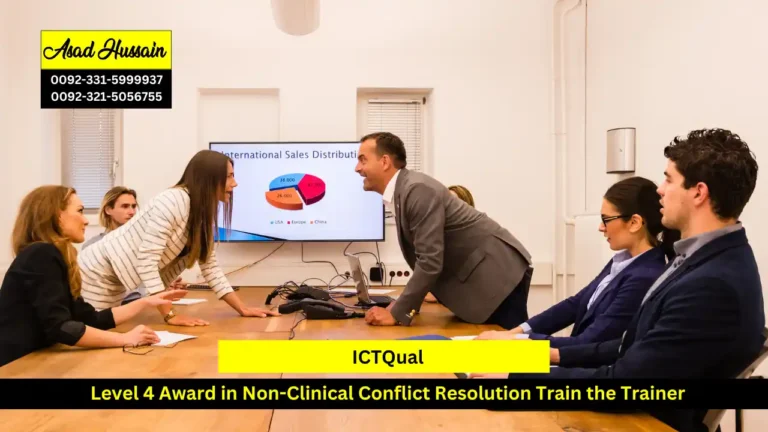In today’s rapidly evolving business landscape, energy management is a crucial area of focus for organizations aiming to enhance efficiency, reduce costs, and meet sustainability goals. The Level 6 Diploma in Energy Management offers a comprehensive approach to mastering these aspects, equipping professionals with advanced knowledge and practical skills in energy management. Its benefits, and how it can impact your career in energy management.
The Level 6 Diploma in Energy Management is an advanced qualification designed for those looking to deepen their expertise in energy management practices. Targeted at senior professionals, the diploma provides a strategic understanding of energy policies, management systems, and technologies. It’s an ideal qualification for those aiming to lead energy management initiatives and drive organizational change towards more sustainable practices.
The Level 6 Diploma in Energy Management offers a robust framework for advancing your career in energy management. By combining technical skills with strategic insights and leadership capabilities, this qualification prepares you to tackle the energy challenges of today and tomorrow. Whether you’re looking to enhance your current role or pivot to a new position, the Level 6 Diploma provides the tools and knowledge needed to succeed in this dynamic and vital field.
Program Highlights
Mandatory Units
- Introduction to energy management
- Technical and Operational
- Behavioural Change and Motivation
- Waste Management
- Procurement
- Energy Assessments, Measurements and Verification
- Regulatory & Legal Compliance and Carbon Management
- Strategy/Plan in energy management
- Typically, candidates are required to hold a relevant undergraduate degree or equivalent qualification in a related field such as engineering, environmental science, sustainability, or energy management. The degree should be awarded by a recognized institution.
- Since the course is conducted in English, proficiency in the English language is essential to comprehend course materials, participate in discussions, and complete assessments effectively.
- Basic technical skills, including proficiency in using computers, conducting data analysis, and understanding mathematical concepts, are beneficial for successfully completing the course requirements.
- While not always mandatory, many programs prefer candidates with relevant work experience in the energy sector or related industries. This experience may vary depending on the program but usually ranges from 1 to 3 years.
Introduction to Energy Management
- Understand the Fundamentals: Gain a comprehensive understanding of the principles and practices of energy management, including the importance of energy efficiency and sustainability.
- Identify Key Concepts: Learn the key concepts and terminologies related to energy management, including energy sources, consumption patterns, and efficiency metrics.
- Analyze Trends: Examine current trends and future directions in energy management, including technological advancements and emerging best practices.
Technical and Operational
- Apply Technical Knowledge: Develop technical skills to analyze and optimize energy systems and infrastructure, including HVAC systems, lighting, and industrial processes.
- Implement Operational Strategies: Learn how to implement and manage operational strategies that enhance energy efficiency and reduce operational costs.
- Evaluate Performance: Assess the performance of energy systems using advanced technical tools and methodologies to ensure optimal energy usage.
Behavioural Change and Motivation
- Understand Behavioural Factors: Explore the psychological and behavioral factors that influence energy consumption and management.
- Develop Motivational Strategies: Create effective strategies to motivate individuals and teams to adopt energy-efficient practices and behaviors.
- Implement Change Management: Learn techniques for managing and leading change initiatives aimed at improving energy efficiency within organizations.
Waste Management
- Assess Waste Streams: Understand different types of waste generated in various processes and assess their impact on energy consumption and environmental sustainability.
- Develop Waste Reduction Strategies: Formulate strategies to reduce, reuse, and recycle waste, thereby improving overall energy efficiency and minimizing environmental impact.
- Implement Best Practices: Apply best practices in waste management to enhance energy performance and support organizational sustainability goals.
Procurement
- Understand Procurement Processes: Learn about the procurement process for energy-related products and services, including supplier selection and contract management.
- Evaluate Energy Efficiency in Procurement: Assess and select energy-efficient products and services that align with organizational energy management goals.
- Negotiate and Manage Contracts: Develop skills to negotiate and manage procurement contracts effectively to achieve cost savings and energy efficiency.
Energy Assessments, Measurements, and Verification
- Conduct Energy Assessments: Acquire the skills to perform comprehensive energy assessments to identify areas for improvement and potential energy savings.
- Measure Energy Performance: Learn techniques for accurately measuring energy performance and consumption using various tools and technologies.
- Verify Savings: Implement verification methods to ensure that energy savings are realized and sustained over time.
Regulatory & Legal Compliance and Carbon Management
- Navigate Regulations: Understand and apply relevant energy regulations, standards, and legal requirements to ensure organizational compliance.
- Implement Carbon Management Strategies: Develop and implement strategies for managing and reducing carbon emissions in line with regulatory and organizational targets.
- Stay Updated: Keep abreast of changes in regulations and legal frameworks affecting energy management and carbon management practices.
Strategy/Plan in Energy Management
- Develop Strategic Plans: Learn to create and implement strategic energy management plans that align with organizational goals and objectives.
- Evaluate and Adapt Strategies: Assess the effectiveness of energy management strategies and adapt plans based on performance metrics and evolving needs.
- Integrate with Organizational Goals: Ensure that energy management strategies are integrated with broader organizational goals and sustainability initiatives for maximum impact.
The Level 6 Diploma in Energy Management is tailored for professionals seeking to deepen their expertise and advance their careers in the field of energy management. It is ideal for current energy managers who aim to enhance their strategic and technical skills, as well as sustainability consultants looking to specialize further in energy efficiency. Facility managers responsible for optimizing energy use in buildings and organizations will benefit from the course’s comprehensive approach, while environmental professionals interested in integrating advanced energy management practices into their roles will find it highly relevant. Additionally, the diploma is suited for individuals in regulatory compliance roles who need a thorough understanding of energy regulations and carbon management. Overall, this course is designed for those who aspire to lead and innovate in energy management, driving sustainability and efficiency across various sectors.







